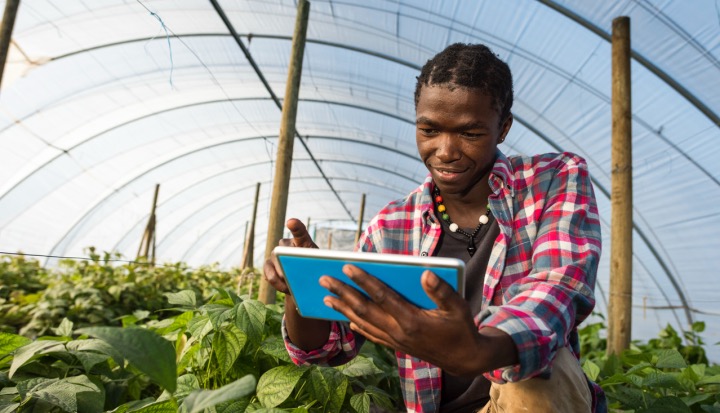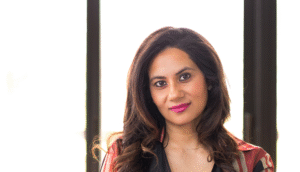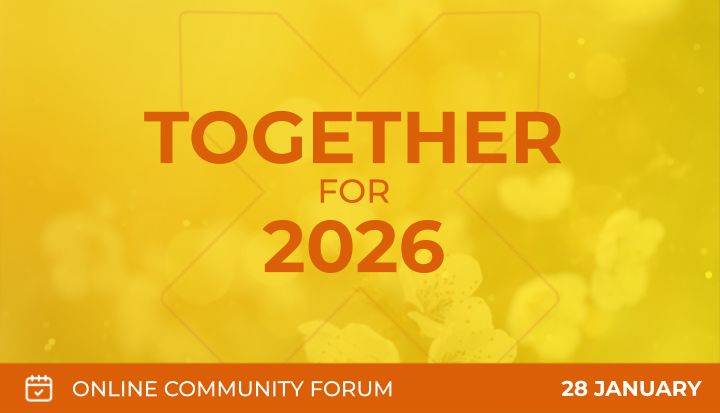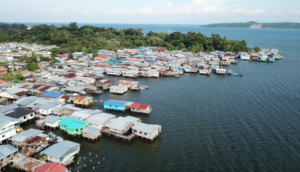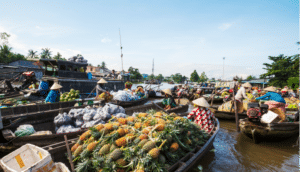Valentine Abayisenga, a young community animal health worker (CAHW) in Rwanda’s Nyamasheke District, struggled to find stable employment after graduating from high school. Meanwhile, in the same community, farmer Didace Kabayiza faced risks in smallholder agriculture. Without any financial protection for his livestock, he recalled feeling “…anxious whenever it rained, as thunder and lightning often struck my animals.”
Their paths crossed through an insurance intervention pilot program implemented by Rwandan agri- and fin-tech firm Dedicated Agri Services (DAS). This initiative is part of a broader effort to bring essential products and services—such as livestock insurance, feed, and electricity—to rural areas. Valentine was hired by DAS as a sales agent.
“Through my job, I received training on livestock insurance and now have an income-generating role,” said Valentine. She educates farmers like Didace about how livestock insurance can protect their livelihoods and helps them secure protection for their animals.
“Insurance has given me a greater sense of security during periods of heavy rain,” said Didace.
Sales-agent models create economic opportunities for women and youth, provide last-mile distribution of products and services to underserved areas, and enable businesses to grow by expanding their reach.
But what are the keys to making this model work? Based on the experiences of two Sida programs implemented by TechnoServe, ReGenerate Rwanda and Women IN Business (WIN) in Mozambique, we have identified three key success factors.
1. Building Trust in Local Communities
Sales agents are most effective when they already have the trust of local communities. For example, DAS intentionally recruits CAHWs who are influential and well-connected in their communities.
DAS transformed this volunteer network, allowing CAHWs to expand their impact while earning an income. Farmers receive education from CAHWs about protecting their livelihoods through insurance, while also accessing technical support from veterinarians. Currently, 456 CAHWs and 63 veterinarians support farmers in the intervention. The dual support system helps farmers understand and trust the offering, leading to insurance adoption. 5,137 farmers have purchased insurance to date.
2. Demonstrating to Companies the Competitive Advantages of Engaging Women and Youth
It is also critical that companies adopting sales-agent models understand the business case for engaging women and youth as both employees and customers. In Mozambique, WIN demonstrated investing in distribution models that reach both men and women can strengthen their bottom line through several mechanisms.
WIN’s private sector partners found that these efforts helped attract additional funding. For example, solar company Ignite Mozambique secured a low-cost loan from the Energy Access Relief Fund (EARF), which emphasizes the engagement of women as entrepreneurs, workers, and customers. EARF’s framework incentivizes participating companies to do the same, and this alignment encouraged Ignite to implement WIN’s recommendations.
Beyond funding incentives, engaging women as sales agents can also provide strategic advantages in reaching new customers. The WIN program partnered with Nestlé to pilot the magweva [women sales agent] model in Mozambique. “Working with magwevas…gave us a very big return in terms of market penetration of our products to areas where we could not get our products before,” Nestlé’s National Distribution Manager Albertina Chissano explained.
These benefits are also materializing in Rwanda. In DAS’ initiative, women and youth comprise 59% of the CAHWs and veterinarians, earning average monthly commissions of $10.50, compared to $9 for men over 30—a 17% higher performance rate.
For Valentine, that difference comes down to trust. “I noticed that farmers tend to trust…women more than men, which worked to my advantage and enabled me to enroll more livestock into the insurance program,” she said.
As more businesses recognize the potential of this model and offer additional products and services through these sales agents, the participating women and youth will have the opportunity to increase their incomes even more.
3. Creating Strategies for Expansive, Unbiased Recruitment and Retention
Ultimately, an effective sales-agent model requires talented and dedicated sales agents, which means employing practices and approaches to recruit and retain women and youth. That begins with recruiting in channels–and with language–that reach both women and men.
SolarWorks, one of WIN’s partners, reshaped its promotional materials to feature more women as both solar home system owners and sales agents, helping women envision themselves in these roles. This representation strategy complemented its broader efforts to promote and share the stories of women role models in recruitment materials.
The efforts do not end at recruitment; to retain excellent agents, companies should invest in capacity-building and long-term support. These kinds of initiatives improve women’s engagement, contribute to their sense of security and belonging to a team, and enable them to balance personal and professional responsibilities without harming either one.
By adopting effective sales-agent approaches, companies can create inclusive economic opportunities that benefit both businesses and the communities they serve.
